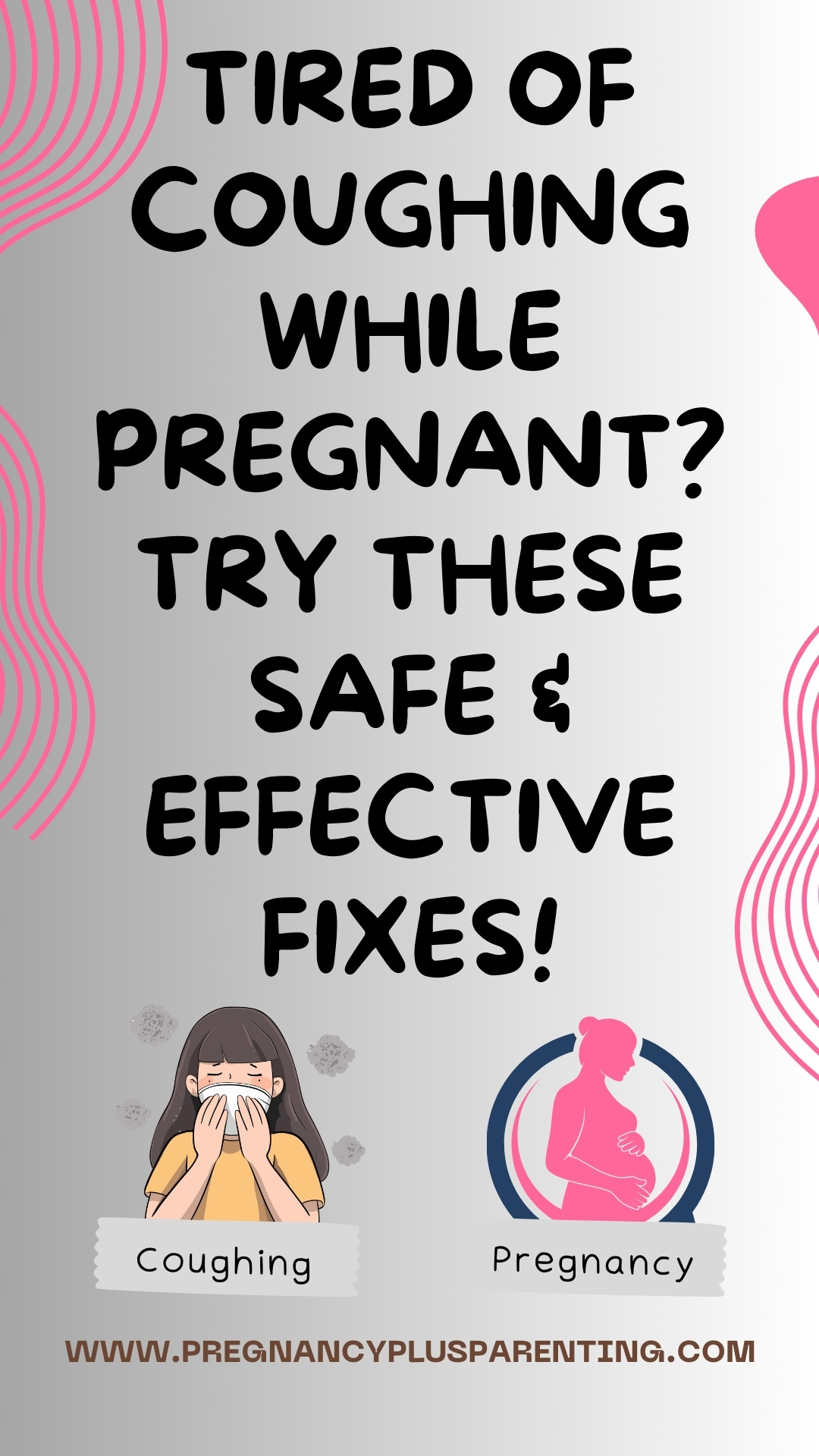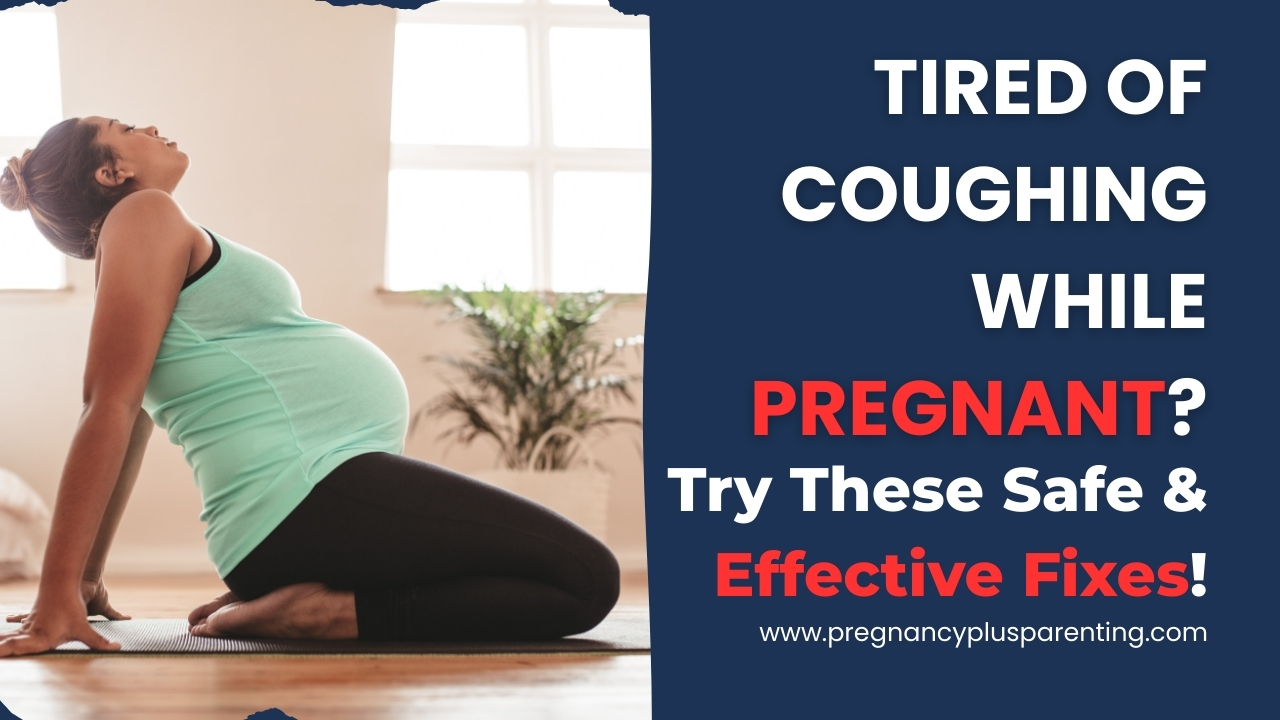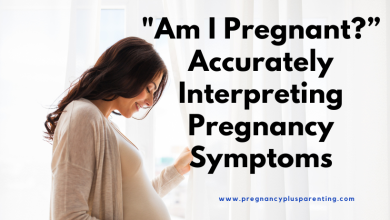Tired of Coughing While Pregnant? Try These Safe & Effective Fixes!
It is winter and unfortunately many pregnant women will catch a cold and have to suffer from a cough during pregnancy.
A cold brings with it many symptoms such as a blocked nose, fever and sore throat .
The most annoying and not always harmless thing is definitely the cough.
It is very difficult to escape infection, especially when it is cold outside.
Pregnant women are much more susceptible to colds because of their weakened immune systems.
Coughing during pregnancy is usually a symptom of a cold. The cough can be dry or wet.
The biggest problem with coughing during pregnancy is treatment, because during pregnancy and breastfeeding, treatment with medication is not an option and could harm the baby.
However, coughs and colds must be treated to prevent possible secondary diseases such as bronchitis or pneumonia.
Because if more serious illnesses occur, medication cannot be excluded from treatment.
No matter what the disease is, each one is serious for the weakened immune system and affects the body.
White blood cells are produced in the body as a defense mechanism to protect the body from invaders (or viruses).
Usually, antibodies from the mother can penetrate to the placenta, but if there is placental insufficiency, an infection can reach the unborn child and cause abnormalities.
That is why it is very important to react immediately to an illness, such as a cough in this case, in order to minimize the risks.
Pregnant women who are at risk of miscarriage or premature birth should be particularly careful.
While you cough, you exert a certain amount of pressure on your baby bump, which in the worst case can lead to uterine prolapse.
Coughing is actually a reaction of the body when the mucous membranes are irritated.
When you cough, mucus is expelled through the respiratory tract, where many bacteria, germs and viruses settle and, if left untreated for a long time, can cause pneumonia.
Before you start treatment, you must first know the diagnosis, whether it is a wet or dry cough.
A dry cough can be particularly troublesome for pregnant women and can often keep you awake at night. It’s not at all pleasant when you cough and your whole stomach becomes tense .
But as a pregnant woman, you are not allowed to take any medication, especially not on your own.
Medications can have negative effects on you and your unborn child.
And although medication is sometimes unavoidable, there is none that is completely safe and gentle for you as an expectant mother and your unborn child.
A dry cough can sometimes have a severe impact on everyday life and be annoying.
To inform you about different medications, there is a database called Embryotox, where you can find out about different medications and their effects on the unborn child.
Any medication can cause allergic reactions or other types of side effects, especially in pregnant women.
In this case, it is recommended to stop taking medication within a few days if no recovery is in sight.
Under no circumstances should you treat yourself alone without first consulting your gynecologist.
Often, alternative medicine such as home remedies can help combat coughs and other discomforts during pregnancy .
Cough during pregnancy – causes?
Persistent cough during pregnancy can have several causes, most commonly a viral or flu-like infection.
A cough can also be caused by various allergies, acute respiratory problems or smoking.
Coughing during pregnancy is usually just one of the symptoms along with a runny nose, hoarseness, fever, listlessness and other symptoms.
If you have a dry cough, you shouldn’t wait until it turns into a wet one for several reasons.
First, your stomach is constantly tense while you cough, and it is impossible for you to get enough rest while the cough plagues you at night.
That’s why timely treatment is very important to prevent more serious complications and so you can rest.
Because during pregnancy you need a lot of relaxation and rest and a strong cough during pregnancy gives you everything but rest.
One of the most common causes of cough is inflammation of the upper and lower respiratory tract.
If the cough occurs while you have a cold, it is because your mucous membranes are irritated and dry, resulting in a strong cough.
If you have a sore throat, then an infection is the cause of the annoying cough.
Some allergies can also cause coughing, and while you are pregnant you are also more prone to allergic reactions.
Heartburn can also cause coughing during pregnancy, as it is known that many pregnant women suffer from it.
Especially at night when lying down, coughing can occur when stomach acid passes from the esophagus into the trachea.
A cough during pregnancy can occur due to many reasons and it is a misconception to think that only inflammation of the respiratory tract causes a cough or that cough and cold simply go hand in hand during pregnancy .
A cough can also be a sign of much more serious health conditions and that is why it is very important that you consult your gynecologist and not try to diagnose it yourself.
Because a long-lasting cough is always a cause for alarm.
If the cough is the result of a viral infection, the cough is usually mild on the first day and in the following days your nose starts to run and you cough up a lot of mucus.
The cough is accompanied by chest pain, fever, listlessness and, not infrequently, headaches.
If it is bronchitis, you will produce a lot of mucus from the start and suffer from a strong cough, especially when you are in colder rooms.
Cold air temperature causes the strong cough and the stuffy nose puts pressure on your ears and chest while you cough.
Fever is not a major indicator in this case; bronchitis is more likely accompanied by listlessness.
If your diagnosis is bronchopneumonia, you may experience a cough that makes you feel like you’re choking.
This type of cough tends to worsen depending on the season, especially in spring or autumn, because it is caused by various allergens that are abundant during this time of year.
No matter what the cause of the cough is, the symptoms are almost always the same and differ minimally.
Coughs can be mild or very strong, wet or dry, they can torment you during the day as well as at night, they can make you feel listless and they can even cause nausea.
When it comes to coughs, as well as any other pregnancy symptoms, it is important that you get enough rest, avoid stress and try to take care of your body so that you can recover quickly.
Wet cough during pregnancy
A wet cough occurs most often in autumn and winter as a result of colds.
A wet cough is also called a productive cough because it is accompanied by expectoration, where mucus is released from the bronchi during coughing.
Coughing is very often a defense mechanism of the body to rid itself of bacteria, germs and viruses that have settled on the mucous membrane.
A cold during pregnancy can definitely cause a cough and it is very important that you treat a cough in time before it turns into something worse.
A wet cough, where you expel mucus from your airways when coughing, is considered positive by doctors.
This is a sign that your body is defending itself against invaders such as viruses, which means that the immune system is doing its job.
Based on the mucus you cough up, your doctor can also make a diagnosis and know what is wrong with you and what is causing your cough.
The sputum can have different consistency or color.
A wet cough is usually an indicator of a viral infection, pneumonia, or other respiratory diseases.
Dry cough during pregnancy
Dry, or more precisely, non-productive coughs usually cause much more suffering than wet coughs.
Attacks of dry cough can be very irritating and may even cause vomiting.
If a dry cough occurs during pregnancy, it may well be that your body is unable to cough up the phlegm from the bronchi.
That’s why you keep having the urge to cough.
If the dry cough lasts for days and is accompanied by a high fever, it may be pneumonia.
If you don’t have a fever, but you feel a lot of pain and are sweating more, it could be a sore throat.
Viral infections and respiratory diseases are usually the main cause of cough.
However, if you don’t treat the cough in time, it can quickly turn into hoarseness or something much worse.
A dry cough is very exhausting and requires a lot of energy, and for you as a pregnant woman it is very important that you calm it down quickly and resist the urge to cough, even if it seems impossible.
Cough syrup can help you, but not in early pregnancy, because then the risk to the unborn child is still far too great.
A cough syrup will soothe the mucous membranes and cause the bronchi to cough up the phlegm or mucus.
A dry cough can be caused by many factors, but most often it is respiratory infections.
The dry cough is usually accompanied by body aches, fever, weakness, loss of appetite, etc.
As a pregnant woman, you must not wait until the dry cough turns into a wet one, especially because the tensing of the muscles when coughing could harm the unborn child and you may find it difficult to get any sleep .
And if you are exhausted and overtired during pregnancy, other pregnancy complications can occur because a weakened body cannot cope with any pathogens on its own.
Although medication is discouraged during pregnancy, it is often unavoidable to take some to help the body recover.
However, all kinds of medication are definitely not recommended in early pregnancy.
In early pregnancy, the baby or fetus is still very sensitive and it is better to choose an alternative to avoid possible complications caused by taking a particular medication.
The simplest and most effective way to control a dry cough is through inhalation.
Inhaling is safe and will definitely do you good and relieve your cough by moistening your mucous membranes and throat.
If you don’t have an inhaler at home, you can always try the good old method used by our grandmothers.
You take a bowl, bend your head over it and cover yourself with a towel.
Please note that it should not be too hot and if you feel uncomfortable with it, then it is better to leave it alone.
The most important thing with a dry cough is to turn it into a wet one.
Because a wet cough means a productive cough, which means that your body coughs out the mucus from the bronchi and with it the viruses, germs and bacteria that have infected it.
To get rid of a dry cough, you first need to know its cause and with the right treatment you can be healthy and cough-free again.
Your doctor is the best person to diagnose it, and you should definitely not try anything on your own.
Coughing during pregnancy – dangerous for the baby?
A severe cough during pregnancy not only exhausts you and your body, but also affects your unborn child. A severe cough can be very uncomfortable and often causes pain.
When you get a real cough, there is almost no way you can breathe at night without being hit by a coughing attack.
The cough may even be so persistent that you may even vomit.
As you cough, your abdomen contracts and your whole body shakes, and it’s normal to be concerned about whether it will have a negative effect on your unborn child.
But don’t worry, your baby is well protected in the amniotic fluid.
Even if the cough is bothering you a lot, your baby is lying comfortably and at most perceives the shaking as rocking.
The pathogens your body is struggling with cannot reach the baby unless you are severely affected by the disease.
Coughing and sneezing cannot harm your child because the abdominal muscles can withstand a little pressure when coughing, even if it feels uncomfortable, and losing urine when coughing during pregnancy is nothing new.
However, if you are prone to premature labor, then the concern is justified and herbal cough drops are suggested as a treatment.
An expectorant or low-concentration nasal spray may also help.
The most important and gentlest home remedy, however, is usually fluid intake, meaning: drinking lots and lots of fluids. Warm drinks are best, because colds always start with the cold.
Treatment of cough during pregnancy
All expectant mothers worry about coughs or similar pregnancy complications.
However, it is not always serious and with timely treatment almost all complications and complaints can be remedied.
Even though the cough is annoying and irritating and your entire abdomen contracts when you cough, it is harmless for your baby.
A cough cannot trigger premature labor unless you are already at risk of premature birth.
Coughing is actually nothing more than a protective mechanism of the body and you should not try to suppress it.
When you cough, your body expels mucus from your lungs.
Since caution is required with many medications during pregnancy, it is not always easy to get rid of a cough.
Even if you are treating yourself, you should consult your doctor first, because even during pregnancy, a cold or cough is usually harmless and does not require medical treatment.
As a pregnant woman, it’s better to stay in bed and rest than to sit somewhere in a waiting room that’s sure to be teeming with all kinds of bacteria and viruses.
However, if you suffer from a high fever that lasts for days, rest and self-treatment are not enough and you should definitely see a doctor as soon as possible.
If the symptoms are mild, your doctor will probably advise you to try a home remedy first.
Inhalation is always a good choice for treating coughs.
You should also increase your fluid intake by drinking plenty of water or teas.
Inhalation and various compresses such as potato compresses have a positive effect on coughing because the vapors loosen the mucus and promote blood circulation.
Fennel, sage, chamomile, saline solution or tea tree oil or vapors from other essential oils provide relief.
However, you should also proceed with caution and only use the solutions in very diluted form, especially if you are asthmatic.
You should avoid eucalyptus and mint altogether; although they are very popular in the fight against colds and coughs, they can stimulate the uterus during pregnancy.
You can enjoy teas like chamomile in large quantities without worry, but caution is advised with sage and anise.
Consuming anise and sage tea can cause premature labor during pregnancy.
The concentration of the various substances in these teas cannot be tracked and excessive consumption of these medicinal herbs can severely affect the hormonal balance of a pregnant woman.
However, you can gargle the teas to relieve your cough.
A herbal cough syrup is also a good solution and can help with your annoying cough.
Here, onion juice is the best known home remedy for coughs.
The essential oils in the onion thin the mucus in the bronchi and make it easier to cough up.
There are also breast ointments with essential oils that are permitted during pregnancy and that can provide relief when rubbed in.
However, you should also consult your doctor beforehand, as not everything plant-based is allowed during pregnancy.
A calf compress or a potato compress also helps with coughing by reducing the urge to cough.
To do this, simply take a few small potatoes, boil them, then mash them, place them on a cloth, wait until they have cooled down—not completely, but to the temperature you can tolerate on your skin—and wrap it around your neck.
If all this continues to be unsuccessful, then so-called mucolytics are offered for oral use.
If there is heavy mucus production, a mucus solution containing the active ingredients acetylcysteine, ambroxol or bromhexine helps and is best taken in the morning.
If you have a cough and a high fever and have tried harmless home remedies without success, you can take paracetamol to reduce the fever.
Paracetamol is permitted for fever reduction during pregnancy, but you should not take it without first consulting your doctor.
A blocked nose can also cause coughing; increased breathing through the mouth dries out the throat, which leads to coughing.
Nasal drops are also allowed during pregnancy, but only for a short time and are not a long-term solution.
Preventing coughs during pregnancy
The best protection against a cold, runny nose or viral infection is to avoid sick people.
A viral or flu-like infection is spread through so-called droplet infection.
Especially now, while it is colder, viruses and bacteria are lurking everywhere.
If you can’t avoid human contact, pay attention to hygiene. Washing your hands is very important.
It is also important that you keep yourself warm.
While cold temperatures don’t directly cause a cold, cold temperatures do promote the development of a cold. A cough is a constant companion to almost every cold.
You should strengthen your defenses and support your immune system, especially now that it has to take care of two beings.
Drinking enough fluids is not only important if you’ve already caught a cold, it’s also a great way to prevent a cold.
Experts even recommend drinking 2.5 liters of water or tea throughout the day to keep the mucous membranes moist.
A varied and vitamin-rich diet helps strengthen your body’s immune system.
A lot of exercise, especially in the fresh air, is also a measure against colds.
Staying in a dry room climate for too long and for too long can cause the mucous membranes to dry out, which encourages the establishment of various pathogens.
Especially now during the heating season, you should make sure that your body does not “dry out” and ensure you drink plenty of fluids and maintain a healthy indoor climate.
Medication information for pregnant women – Embryotox
Embryotox is a great help for pregnant women if you want advice about medication.
The Pharmacovigilance Center for Embryonic Toxicology at the Charité Berlin makes this information available to everyone on its website.
This is a publicly funded institute that has been available to doctors and pharmacists since 1988.
Information on the tolerability of medicinal products for the treatment of pregnant women and breastfeeding mothers.
You should definitely consult your doctor before taking any medication, but if you want to do a little research on your own, this site is sure to be a good source of information that interests you.
Final thoughts
Dear expectant or current mom, I sincerely hope you haven’t caught it and that you’re not suffering from a cough or cold. But if you do catch it, please don’t panic.
As you have seen, a cough during pregnancy is usually not a reason to panic.
If your pregnancy is classified as high-risk, you must follow all of your doctor’s advice and under no circumstances resort to medication on your own.
Even if using herbal home remedies seems logical and harmless, this is not always the case and during pregnancy, taking and consuming various medicinal herbs can backfire.
However, you can always consult your doctor and decide together what is best for you.
Every doctor will first try to alleviate the symptoms in a harmless way before resorting to medication.
Although many medications are discouraged during pregnancy, there are also some that are permitted and considered safe.
Please don’t panic, because like any other cough, a cough during pregnancy is usually harmless and will go away on its own. The important thing is to calm yourself down and avoid stress.
Negative feelings or stressful situations also affect the baby.
With plenty of exercise and fresh air, a balanced diet and enough sleep, you don’t have to worry.
It is important to keep a clear head and act correctly and in a timely manner.
And if you’re worried about being a nuisance to your doctor – NO!
It’s not you; it’s his job to inform you and reassure you if your worries and fears are unfounded.
I wish you a wonderful pregnancy and that you will soon be holding your baby in your arms without worry and that your cough will soon be a thing of the past.







